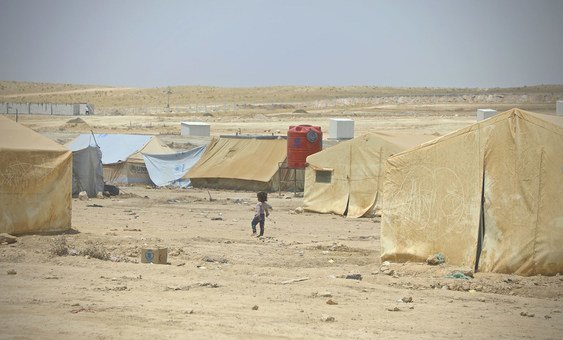“Citizenship is a gateway right, which enables and supports the right to have other rights, and without it individuals are profoundly vulnerable to harm”, said Fionnuala D. Ní Aoláin, Special Rapporteur on the promotion and protection of human rights and fundamental freedoms while countering terrorism.
Teen mother
Shamima Begum was one of three schoolgirls who left the UK capital in 2015 to join ISIL terrorist fighters in Syria.
Aged 15, she married an alleged ISIL combatant and gave birth to two children while still a minor, and then a third after turning 18.
All three children died, the third while they were detained at Al Hol refugee camp in northern Syria.
Ms. Begum, now 20, was found last year in Camp Roj, another of Syria’s largest refugee and IDP camps, according to media reports.
At that time, the UK Home Office revoked her citizenship on security grounds.
Kudos to the court
As a fundamental right under international law, it is prohibited to arbitrarily deprive a person of citizenship, the UN expert said, saying having status provided “essential protection for individuals”.
According to news reports, the Court of Appeal maintained that Ms. Begum had been denied a fair hearing because she could not make her case effectively, from the Syrian camp.
Ms. Ní Aoláin commended the UK court for “grasping the essential and absolute importance of the right to meaningfully participate in the proceedings depriving a person of their citizenship”.
She valued the “independence and thoughtfulness of the Court’s review” along with its willingness “to allow for a human rights intervention, and its acknowledgment of the relevance of international law to such proceedings”.
Intervention
The Special Rapporteur intervened in the case, she said, because of “the severe and irreparable consequences” of revoking citizenship to the minor when she travelled to Syria.
Citizenship is a gateway right, which enables and supports the right to have other rights — UN expert
She described the then adolescent as “a child who may have been groomed online, and who had no meaningful capacity to participate in the legal proceedings depriving her of citizenship”.
The independent UN expert, was “deeply concerned” that Ms. Begum – along with other women and children abandoned by their own governments – were eking out “survival in an overcrowded camp and under conditions that were inhumane and degrading that amount to torture under international law and where her right to life is under constant threat”.
Repatriation response
International law not only fulfils UN Security Council resolutions but also takes into consideration the long-term security interest of States, Ms. Ní Aoláin said.
“The urgent return and repatriation of foreign fighters and their families from these conflict zones is the only international law-compliant response to the increasingly complex and precarious human rights, humanitarian and security situation faced by those women, men and children”, the Special Rapporteur concluded.
Independent experts are appointed by the Geneva-based UN Human Rights Council to examine and report back on a specific human rights theme or a country situation. The positions are honorary, and the experts are neither UN staff nor paid for their work.

